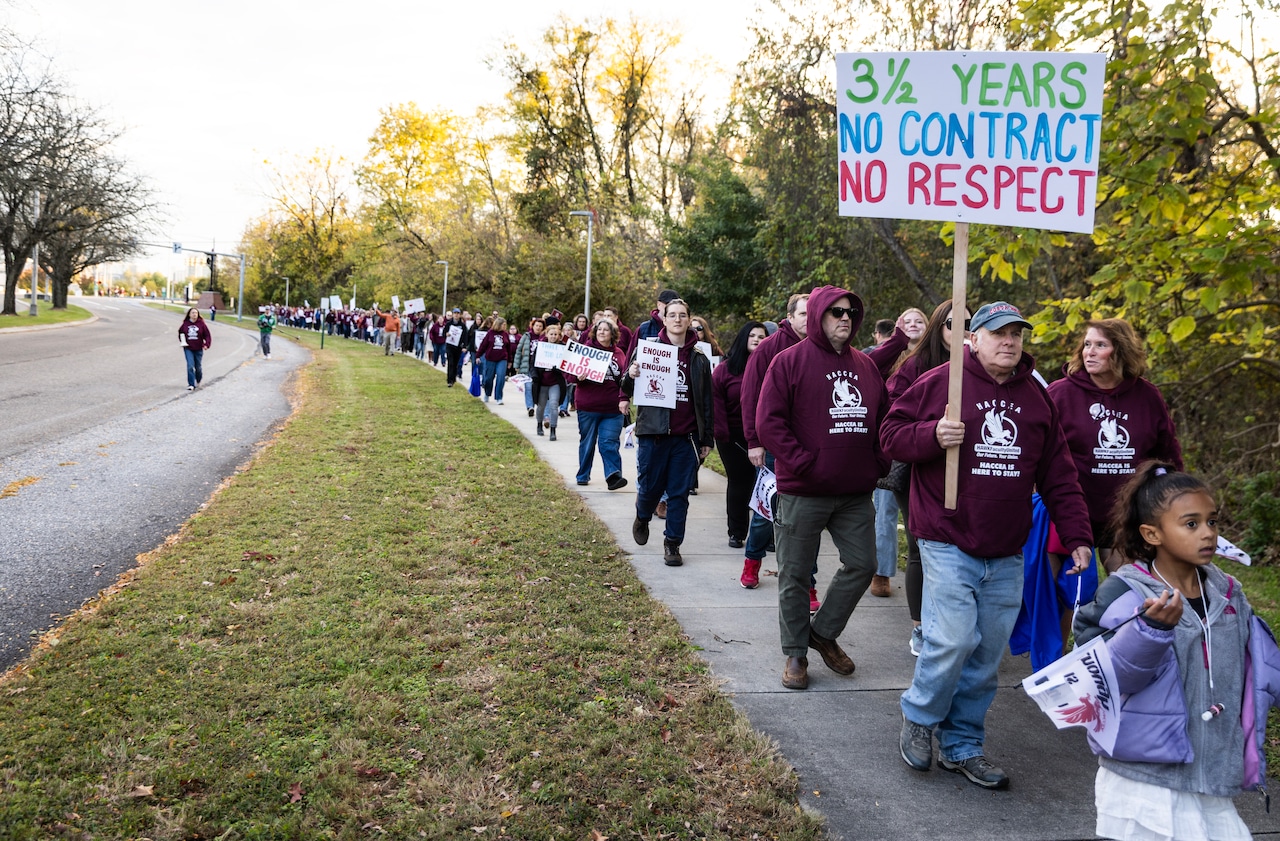Copyright newstatesman

Britain’s mental health system is under incredible strain. Referrals for children and young people have doubled in five years, while more adults are out of work due to sickness than at any point since records began. Cost of living, insecure or poor housing and overstretched services are feeding one another in a cycle of crisis, meaning the picture continues to worsen. Hestia’s 2025 London Mental Health Index, for example, found that the proportion of adults reporting having experienced three or more symptoms of poor mental health in the past year had risen by 9 per cent on 2024 levels The challenge is not only to treat mental illness, but to build the connections between services that help people before, during and after crisis — a task that demands collaboration across sectors as well as reform within the NHS. At Labour Party Conference, the New Statesman and Hestia brought together political and sector leaders for a panel discussion to ask what that collaboration should look like in practice. The conversation focused on how health, housing, education, employment and the voluntary sector can work together to support people at every stage — from prevention and early intervention to recovery and ongoing care. Lord Adebowale, chair of the NHS Confederation, opened with a warning. “We keep doing the same things and being surprised they don’t work,” he said. Despite years of talk about “parity of esteem”, mental health still receives less attention and funding than physical health. The result, he argued, is a patchwork of services that leave too many people without support until crisis hits. “We have to stop pretending we don’t know what’s required – we’ve seen what can be achieved in standalone cases, but we rarely see it scaled.” Adebowale pointed to successful local models that combine NHS, council and voluntary services as proof that progress is possible. “Take what works somewhere and make it available everywhere,” he said. “When you get those people in the same room, risk is shared, trust is built, and outcomes improve.” Before entering Parliament, Sojan Joseph MP spent over 20 years working in community and acute mental health care. “In Kent, a third of acute mental health beds are blocked by people waiting for social care or benefits,” he said. “That isn’t a clinical issue – it’s a systems problem.” Joseph described a system in which access to services is slow, coordination poor and responsibility diffuse. “Our services don’t talk to each other — even within the NHS, it’s hard enough,” he said. Joined-up working, he argued, is the only way to manage demand and support people through recovery. “Everybody knows the issues,” he said. “What we need now is action.” Debbie Abrahams MP, chair of the Work and Pensions Select Committee, cited a tapestry of challenges that lay well beyond primary care. “What we’re seeing is a deepening situation,” she said. “It’s not just about diagnosis; it’s about the complex range of intersecting factors — education, housing, employment, poverty.” Some efforts were being made to address those underlying issues. Abrahams welcomed government plans for Young Futures hubs — local centres that will bring together mental health, education and social care services for young people — but cautioned against too narrow a focus. “We need these hubs to be community settings where young people can get early support and talk about the range of issues affecting them,” she said. “Otherwise they won’t have the intended impact.” Adebowale agreed that no single department or sector can fix the problem alone. “We talk about systems, but systems are made up of people,” he said. “Collaboration only happens when people know and trust each other.” He argued for a model of leadership that values relationships and long-term outcomes over short-term metrics. “Measure outcomes, not just outputs,” he said. Abigail Ampofo of YoungMinds provided a vivid account of the reality faced when those systems fail. “Parents call our helpline because they don’t know where to turn,” she said. “The system is so fragmented that families give up before they find help.” For collaboration to work, she argued, support must reach young people before crisis point and continue through recovery. “If you want to stop a crisis, you have to build support around where people already are,” she said. “Schools, youth clubs, community spaces — that’s where we need to be.” Catherine Fallon, an area manager for Hestia’s Mental Health Crisis Alternatives in London, saw a landscape where too many people simply did not have those options available to them. “People come to A&E because it’s the only door open,” she said. “Collaboration isn’t just a referral. It’s when a clinician trusts a voluntary sector partner with a high-risk case – when we’re invited into the same care-planning meeting.” Fallon’s work focuses on non-clinical spaces such as recovery cafés and crisis centres – places where people in distress can find support outside hospital walls. “The highest number of presentations we see are past trauma, isolation and relationship breakdowns,” she said. “These are social problems as much as clinical ones and talking about them can be incredibly intimidating, especially for people who aren’t used to the language of mental health. People often arrive at crisis point not because services weren’t there, but because they didn’t know how to reach them or felt they wouldn’t be understood.” Articulating the value of non-clinical spaces for aiding recovery and management, she gave an example of a man who had become suicidal after losing his job. Through integration into a community football group, he rebuilt confidence and connection. “That gave him routine, a reason to leave the house,” she said. “Once he had that, the rest – housing, work, therapy – started to follow.” All panellists agreed that short-termism undermines progress. Community organisations are expected to provide stability but survive on year-to-year funding. When projects close, trust is inevitably eroded. Adebowale called for multi-year commissioning that measures recovery and stability rather than throughput. “We know the voluntary sector can be as safe, if not safer, than statutory services,” he said. “The challenge is consistency.” For Joseph, collaboration also requires proper leadership and data. “Collaboration isn’t free,” he said. “It takes time, it takes shared budgets, and it takes data that actually joins up.” Publishing local data on outcomes, he added, could help accountability without blame. Adebowale agreed: “When information on cancer surgery outcomes went public, the variation narrowed. Transparency works.” Abrahams linked this to fairness. “The inverse care law still applies,” she said. “The places that need the most help often have the least.” Collaboration, she argued, will only succeed if the communities carrying the greatest burden are the first to receive investment. Ampofo echoed the point. “A lot of the pilots happen in areas where things are already working relatively well,” she said. “We should be starting with the communities that have the highest need, not the lowest risk.” That means recognising the expertise already within those places — youth workers, teachers, volunteers — and connecting them to statutory services rather than leaving them isolated. Fallon also agreed, stressing that such community-based support often offers something hospitals cannot. “When we’re working with people in crisis, just telling them what to do isn’t effective,” she said. “People need time and space to be understood.” Unlike A&E, where pressures and waiting times are acute, recovery cafés and safe spaces can provide calm, continuity and human contact. “People assume hospital is where they’ll get the best help, Fallon continued, “but often what they need is a conversation, a plan, a place to breathe.” By the end of the discussion, the sense of shared direction was clear: collaboration as both moral duty and practical necessity. The UK does not lack for examples of places where successful collaboration can be found happening, but it does lack consistency. Beyond better surfacing of best practise, what’s required is clear, consistent standards, the funding of partnerships on longer cycles, and providing professionals the time and trust to work together. Adebowale summed it up simply: “Hope has to be made possible.” Building that hope, the panellists agreed, requires creating a system where collaboration is the rule, not the exception.



